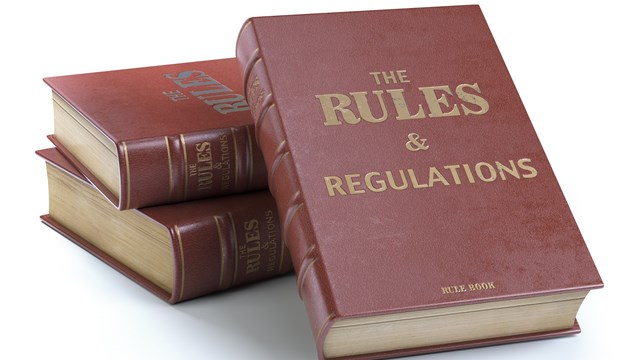The certificate of incorporation, the proprietary lease (in some cases called occupancy agreements)
and the by-laws are the three underlying documents that form the engine running your cooperative. The by-laws are considered by the courts to be a contract among the shareholders. As such, they will be enforced except when they are found to be unworkable, contrary to the certificate of incorporation or contrary to law.
The by-laws should be re-evaluated from time to time since conditions affecting cooperatives and their operations constantly change as a result of recent court decisions and changes in the law, as well as the experiences of the board of directors in dealing with these by-laws over the years. The procedure by which by-laws are amended is usually contained within the by-laws itself.
Knowing the Procedure
Some cooperative by-laws provide that an amendment may be made by majority vote of the board of directors. Other cooperatives have by-laws which provide that only the shareholders may amend. Some require a majority vote and others require a super majority (usually two-thirds or 75 percent). Thus, the first place to look in determining how your by-laws can be amended is in the by-laws themselves. In all cases, where a vote of shareholders is required, a shareholder meeting must be called for that purpose. The next place to look is the certificate of incorporation of your cooperative. While the procedure to amend by-laws is ordinarily not contained in the cooperative's certificate of incorporation, it should be checked to make sure.
Most by-laws provide that more than 50 percent of the outstanding shares constitutes a quorum, meaning that shareholders owning over half the corporation's shares must be present at such a meeting in order to make the valid vote. Frequently this quorum requirement is not met, primarily due to shareholder apathy. If the cooperative is running in a satisfactory manner, it is not unusual for shareholders to become less interested in the affairs of their building and consequently fail to attend shareholder meetings or fail to complete their proxies.
By-laws may provide that when a quorum is lacking, those shareholders present may adjourn the meeting to another date at which time those shareholders present in person or by proxy (even if less than 50 percent) will constitute a quorum. Thus, a quorum will eventually occur and elections and other business of the cooperative can proceed.
By-laws usually require that a majority of directors must be present at a meeting in order to make a quorum for the transaction or business. Thanks to the sophisticated telecommunications systems available in our modern world, it is not necessary for all directors to be personally present in order for a decision to be made and a resolution adopted. The Business Corporation Law M-'708 allows board action to be taken without board members being physically present; but, only if authorized by the by-laws of the corporation. Thus, by-laws may be amended to allow a board meeting to take place by means of a conference telephone, or similar communications equipment, allowing all persons participating in the meeting to hear each other at the same time.
Amending Subletting Provisions
The matter of subletting apartments in a cooperative has been the subject of a great deal of judici ffb al scrutiny. Much litigation has taken place as to whether boards of directors have the right under the by-laws to restrict, or in some cases prohibit, the subletting of apartments.
Many by-laws authorize the boards of directors to fix a reasonable fee to cover expenses and attorneys' fees before permitting the subletting of an apartment. However, courts have held that such provisions serve to limit sublet fees to those expenses only. Other by-laws provide for a reasonable sublet fee to be paid before a subletting is approved. In these cases too, the courts have refused to enforce sublet fees which the courts have found to be excessive.
Cooperatives seeking larger sublet fees or seeking to limit subletting, require an amendment to their by-laws. This gives the board the authority to establish such fees and charges as they may deem appropriate, without limitation, except as required under the proprietary lease. They are also able to provide that there be no limitation on the right of the boards of directors to grant or withhold their consent to the subletting of an apartmentfor any reason or for no reason.
Amending the Flip Tax
Many by-laws provide that upon the transfer of shares the cooperative may charge reasonable fees to cover the corporation's expenses and attorneys' fees in connection with such proposed transfer. Again, this language has been interpreted by the courts so as to limit these fees to the specific expenses of the cooperative incurred in administering the apartment sale.
If a cooperative seeks to collect a larger transfer fee or flip tax, its by-laws need to be amended to remove the restrictive language calling for reimbursement of expenses and to expand the board's authority to increase the transfer fees. The by-law provision should give the board authority, before approving an assignment of the proprietary lease (sale of apartment), to impose such fees as the board of directors may deem appropriate in its sole discretion, including payment of a transfer fee. Further, the amendment should give the board of directors the authority to alter these fees from time to time in its sole discretion. Of course, the amended by-laws may not be inconsistent with the proprietary leases.
Amending Indemnification Provisions
Directors of the cooperative serve voluntarily and without compensation. Yet, they may be held legally responsible for certain acts or omissions which they may make in their capacity as directors. A mechanism should be in place which will indemnify them against loss or damage including attorneys' fees which may be incurred in connection with a lawsuit instituted against them in their capacities as officers or directors.
Most by-laws contain indemnification provisions. However, many of these provisions lack the full scope of protection that the statutes allow. These by-laws should be amended to track closely the provision of Business Corporation Laws M-'722 to M-'726. These statutes authorize corporations to indemnify their directors or officers only if their by-law provisions are consistent with these sections of the Business Corporation Law.
It should be noted that no indemnification of directors or officers may be made by a corporation if such director or officer is adjudged to have breached his or her duty to the corporation or have acted contrary to law. A director must serve in good faith and with a degree of care and prudence. The statute, however, allows directors and officers to rely upon information, opinions and reports presented by counsel, accountants or other persons which the director believes to be professional and with expert competence.
Proceeding With Caution
The provisions of the by-laws and their amendments should go hand-in-hand with the provisions of the proprietary lease. Care must be taken to ensure that amending the by-laws will not create an inconsistency with the proprietary leases of the cooperative or its certificate of incorporation or that will be contrary to law. Boards of directors and their respective cou 96d nsel should be alert to changing laws as well as court decisions which impact upon the cooperative's existing by-laws.
Mr. Schiff is senior partner in the law firm Schiff, Turek, Kirschenbaum, O'Connell, which handles the legal affairs of more than 100 cooperatives and condominiums in the New York City area.










8 Comments
Leave a Comment